Published on October 6th, 2023
Last updated on October 6th, 2023
Is Hyaluronic Acid Good for Acne?
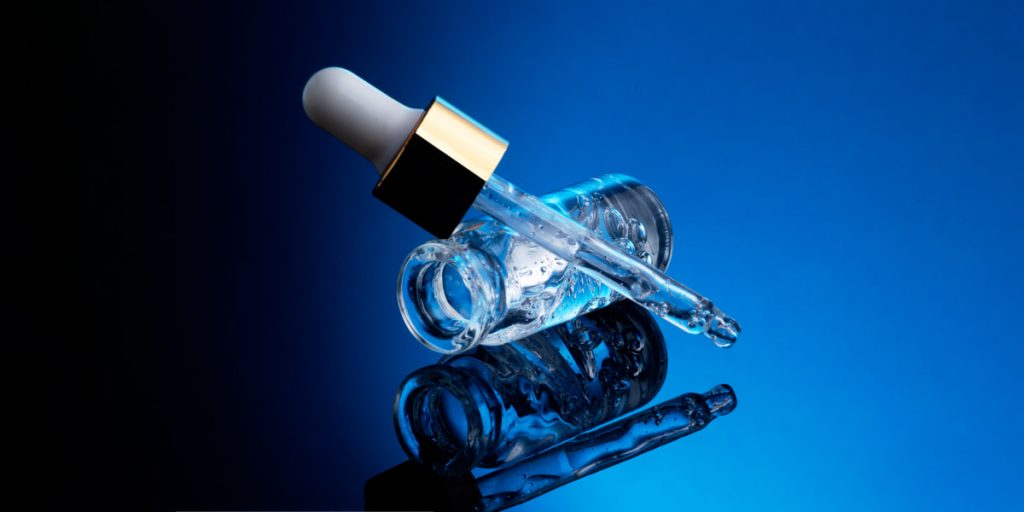
The body naturally produces hyaluronic acid (HA), which is mostly found in the skin, joints, and eyes. Due to its ability to moisturize skin goods, it has grown in popularity. But, there is mounting proof that hyaluronic acid has positive effects. It is especially important for acne-prone skin.
Many millions of people around the world suffer from acne, a common skin condition. Inflammation, germs, and excessive oil production all contribute to its development. Even though there is no cure for acne, there are several acne treatments available to control it.
It demonstrates that hyaluronic acid has anti-inflammatory effects. Acne-related redness and irritability can lessen with its aid. Additionally, it aids in moisturizing skin without clogging pores. People with skin that is prone to acne should pay special attention to this. Besides, hyaluronic acid helps hasten the healing of acne lesions.
This article will explain whether is hyaluronic acid good for acne. We’ll also highlight a few items that you should use for acne scar treatment. If you want to make your skin well-groomed and clean, then read on!
What is Hyaluronic Acid?
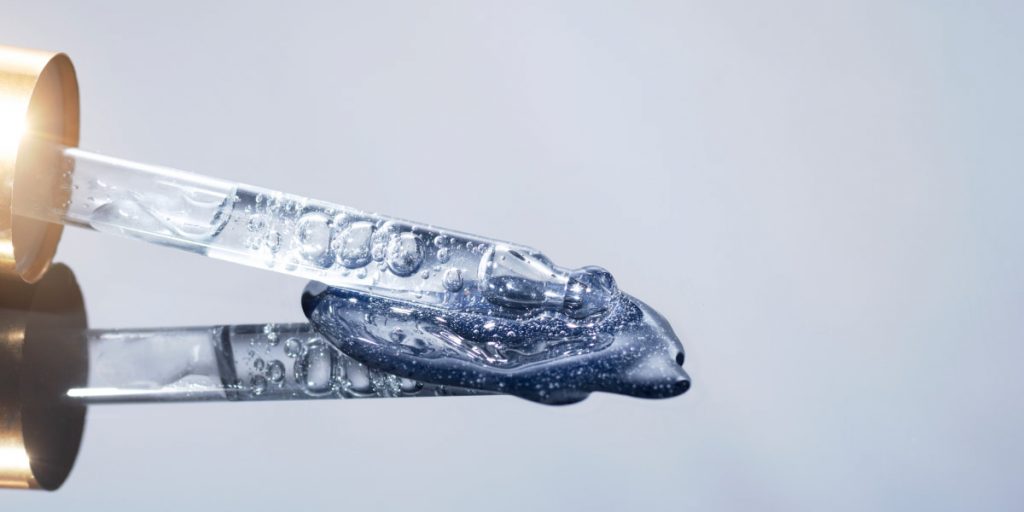
Hyaluronic acid (HA) is an occurring polysaccharide, a specific type of carbohydrate molecule. It is most common on the skin, in the joints, and around the eyes. It is an essential component of the extracellular matrix. All because it provides support and structure to cells, tissues, and organs. HA is essential for keeping the skin supple and moist. It maintains the skin flexible and smooth.
HA is also a popular ingredient in skincare products since it retains moisture. The skin hydrates by the acid, which also makes wrinkles and fine lines less obvious. All skin types can use this non-comedogenic, lightweight ingredient. HA is widely included in serums, moisturizers, and other acne treatment products. It can also inject with injectable fillers for aesthetic purposes.
How Hyaluronic Acid Helps in Acne Treatment?
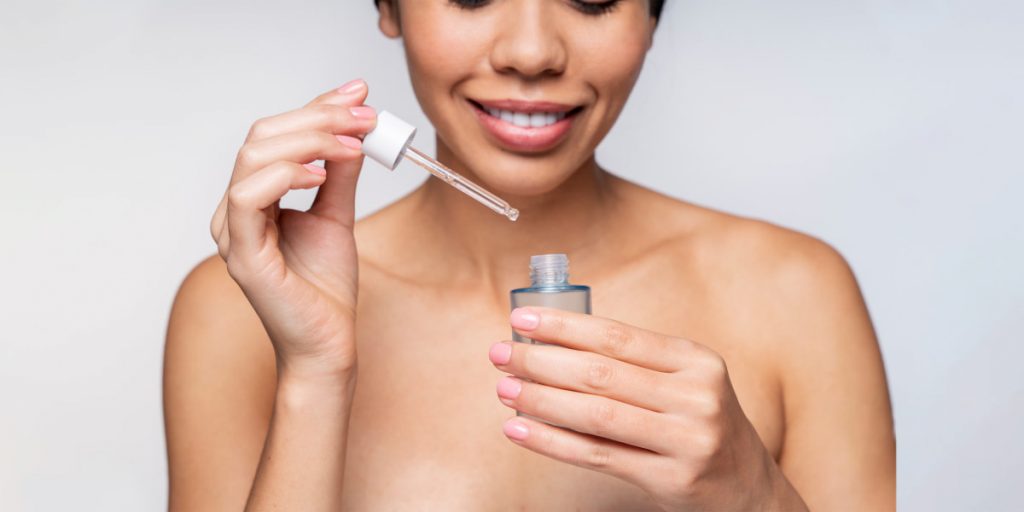
Hyaluronic acid is a naturally occurring substance. It’s known for its ability to keep moisture in the body. It is commonly used to fight aging. But it can also be useful for treating acne skin. Let’s discuss how hyaluronic acid can help acne-prone skin. Hyaluronic acid (HA) can help in acne treatment in several ways:
- Hydration. HA is a humectant, which means it attracts and retains water molecules. It can help moisturize your skin without adding extra oil. It is useful for those with oily or acne-prone skin.
- Anti-inflammatory. HA has anti-inflammatory properties. It can help reduce the redness and irritation associated with acne.
- Wound healing. HA can also help speed up the healing process of acne lesions. In doing so, it promotes the growth of new skin cells and collagen production.
- Non-comedogenic. HA is a non-comedogenic ingredient, which means it does not clog pores or contribute to acne.
Incorporating HA into your skincare can help manage the symptoms of acne on your skin. But, note that HA is not an acne treatment. It should use in combination with other products of a comprehensive skincare regimen. If you have acne problems, it is best to consult a dermatologist.
Does Hyaluronic Acid Help with Acne Scars?
Hyaluronic acid (HA) may help with reducing the appearance of acne scars, but it is not a cure for them. HA attracts and retains water molecules, helping to keep skin plump and moisturized. When applied topically, HA can help improve skin texture and tone. It makes scars less noticeable.
Also, HA can stimulate collagen production. It’s essential for skin healing and can improve the appearance of scars over time. But, for more severe acne scars, other acne treatments may be more effective. These include laser therapy, chemical peels, or micro-needling.
It is important to note that individual results may vary. So, it may take several weeks or months of continued use before there is a noticeable improvement in the appearance of acne scars.
Can Hyaluronic Acid Cause Face Skin Purging?
No, hyaluronic acid (HA) does not typically cause skin purging. Skin cleansing is a temporary reaction. It can occur with the use of certain acne scar treatment products that increase cell turnover. These can be exfoliants or retinoids. This can cause a temporary increase in breakouts as the skin is clearing out clogged pores.
But, HA is not an exfoliating or cell-turnover-promoting ingredient. Instead, it works by attracting and retaining moisture in the skin. This can help improve skin hydration and texture. As a result, it is unlikely that HA will cause skin purging.
Remember that everyone’s skin is different and may react to acne treatment products. In some cases, you may experience a temporary increase in rashes or irritation when introducing a new product into your skincare routine. If you notice any adverse reactions, it is best to stop using the product and consult a dermatologist.
In Which Case You Can’t Use Hyaluronic Acid on Your Acne?
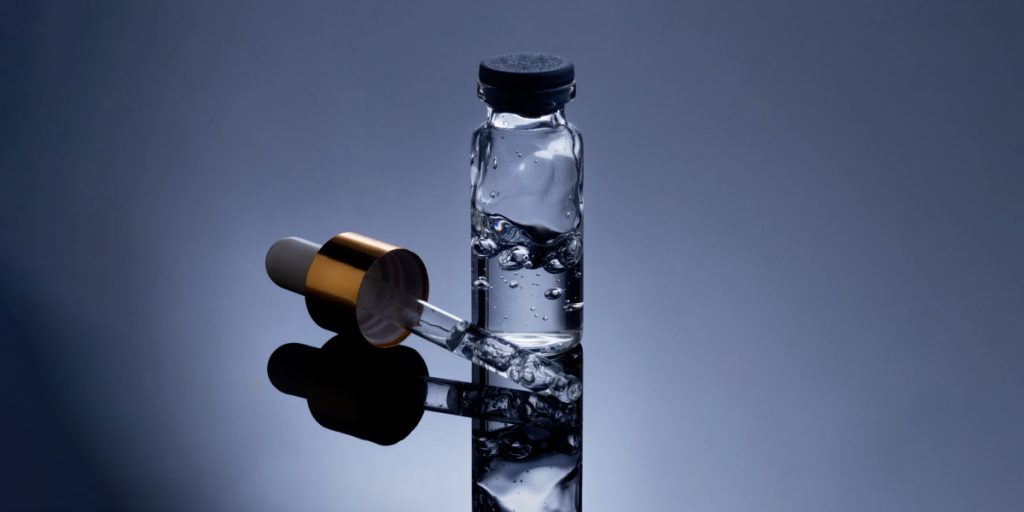
Hyaluronic acid is generally safe and well tolerated by most skin types. But, there are some cases where it may not be suitable for use on acne-prone skin. Understanding these will help you determine if hyaluronic acid is right for your problem. Here are some things that can affect your skin negatively:
- Broken skin
Use HA on open wounds, damaged skin, or active acne lesions. This can cause further irritation and delay the healing process.
- Allergic reactions
Some individuals may be allergic to HA and may experience redness, itching, or swelling when using products containing this ingredient. If you have a known allergy to HA or any other skincare ingredient. It is best to avoid using products containing those ingredients.
- Overuse
HA is generally safe for most skin types. But, using it in too large amounts can cause excessive dehydration and puffiness of the skin. This in turn can aggravate acne.
- Interactions with other skincare products
HA may interact with some ingredients in other acne scar treatment products, such as acids or retinoids. This can lead to irritation or other adverse reactions.
What are the Potential Side Effects of Using Hyaluronic Acid on Your Acne?
In the world of skin care products, hyaluronic acid products are often made together with other essential ingredients. These include lanolin and silicone-based compounds. But, if you have acne-prone skin, you should be cautious about these ingredients. Because they can trap dirt and bacteria in your pores, which leads to clogged pores and pimples. So, avoid hyaluronic acid products that contain lanolin or silicone-based compounds. Also avoid alcohol, parabens, and sulfates, which can also cause skin irritation.
Pay attention to the concentration of hyaluronic acid in the product you are using. This is because a high concentration can cause skin irritation. To be safe, it is best to start with a 1% concentration and gradually increase if needed. Be aware of the ingredients in your skincare products and choose the right ones for your skin type.
Best Hyaluronic Acids for Acne-Prone Skin
Hyaluronic acid has become a popular ingredient in many skin care products because of its ability to hydrate and smooth the skin. It is so a suitable choice for people with acne-prone skin. But, not every hyaluronic acid-based product creates equal. So, picking the best one can be difficult. Some formulations might have components that make acne more obvious. Others might not moisturize well enough or might weigh down skin that is oily or mixed. Let’s look at some of the top acne-prone skin products.
| Name | About the item |
| Hyalugel Hyaluronic Acid Gel for Oily & Acne prone skin | Brand: HyalugelScent: UnscentedItem form: GelActive ingredients: Hyaluronic acidUnit count: 1.05 Ounce |
| Beplain Centella Acne Face Serum | Brand: Be PlainSkin type: SensitiveProduct benefits: HydrationUse for: Neck, faceScent: Unscented |
| Open Formula Hyaluronic Acid 2% Gel For Acne-prone skin & Sustained Hydration | Brand: Open FormulaItem form: GelUnit count: 1.00 Fl OzUse for: Face |
| Blanc Doux Oligo Hyaluronic Acid Serum Deeply Intense Hydrating Daily Essence Ampoule | Brand: THE LAB BY BLANC DOUXSkin type: Dry, sensitive, all skin typesProduct benefits: HydrationUse for: FaceScent: Aloe |
Hyalugel Hyaluronic Acid Gel for Oily & Acne prone skin
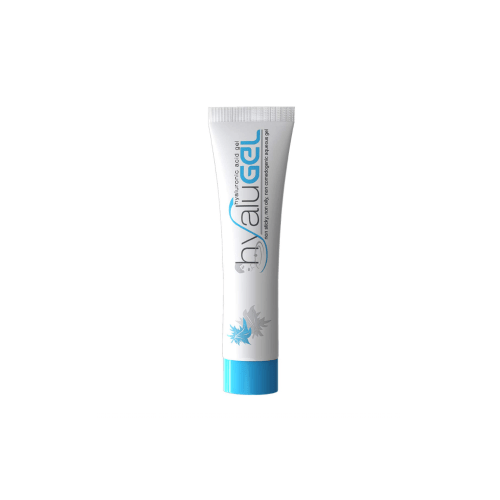
Benefits of Hyalugel Hyaluronic Acid Gel for Oily & Acne prone skin
- Hydration
- Lightweight texture
- Soothing and calming
- Non-comedogenic
- Versatile
Hyalugel Hyaluronic Acid Gel is a specially formulated gel. It’s designed to deeply moisturize oily and prone skin. The gel contains hyaluronic acid, which is a powerful moisturizer. It is what can attract and keep moisture in the skin. The gel is lightweight and non-greasy, making it suitable for use on oily and acne-prone skin.
Moreover, hyaluronic acid also contains a blend of natural ingredients. They need to soften and soothe irritated skin. These ingredients include chamomile extract, witch hazel, and aloe vera. Chamomile extract has anti-inflammatory properties that can help reduce redness and swelling. Hamamelis has astringent properties that can help minimize the appearance of pores.
To use hyaluronic gel, first, cleanse your face thoroughly and pat dry. Then, apply a small amount of the gel to your face, focusing on areas that are prone to oiliness or acne. Gently massage the gel into your skin, using upward and outward motions.
For best results, use gel twice a day, in the morning and at night, as part of your acne treatment. It can use alone or under your usual moisturizer.
Beplain Centella Acne Face Serum
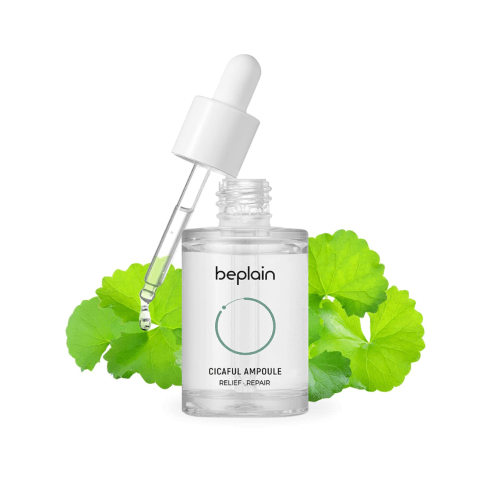
Benefits of Beplain Centella Acne Face Serum
- Anti-inflammatory
- Hydrating
- Oil-controlling
- Brightening
- Non-irritating
Beplain Centella Acne Face Serum is a formulated serum for acne scar treatment. It helps soothe and heal acne-prone skin. It contains a high concentration of Centella Asiatica extract. It’s known for its ability to reduce inflammation and promote healing.
This serum also contains niacinamide for extraction. It can help reduce the appearance of hyperpigmentation and dark spots. Hyaluronic acid hydrates the skin and improves its texture.
Clean your face completely, then wipe it dry before applying the facial serum. After that, apply a small amount of serum to your face. Pay special attention to areas where there is inflammation or acne. Apply the serum to the skin, gently massaging it in upward and outward movements.
Open Formula Hyaluronic Acid 2% Gel For Acne-prone skin & Sustained Hydration
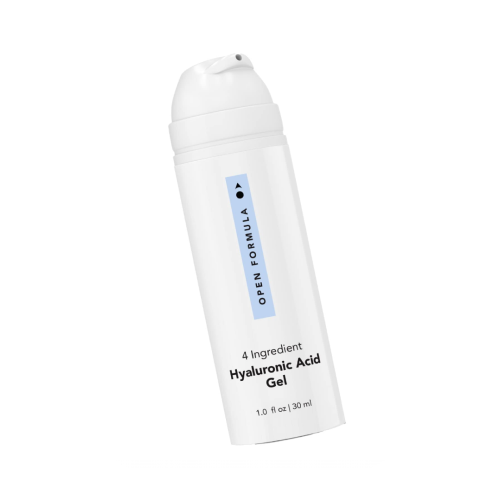
Benefits of Open Formula Hyaluronic Acid 2% Gel For Acne-prone skin & Sustained Hydration
- Hydration
- Non-comedogenic
- Anti-aging
- Soothing
- Fast-absorbing
The Open Formula Hyaluronic Acid 2% Gel is a non-greasy, light gel. It’s made to intensely hydrate skin that is prone to acne. It has a significant amount of hyaluronic acid in it. This is renowned for its capacity to store 1,000 times its weight in water. Additionally, it gives the skin elasticity and long-lasting hydration.
This gel includes allantoin also to hyaluronic acid. It enhances the texture and look of skin while softening and soothing inflamed skin. Additionally, it is free of irritants like alcohol, fragrances, and parabens. It is so a fantastic option for anyone with sensitive acne-prone skin.
To use gel, first, cleanse your face thoroughly and pat dry. Then, apply a small amount of the gel to your face, focusing on areas that are prone to dryness or acne. Gently massage the gel into your skin, using upward and outward motions.
Blanc Doux Oligo Hyaluronic Acid Serum Deeply Intense Hydrating Daily Essence Ampoule
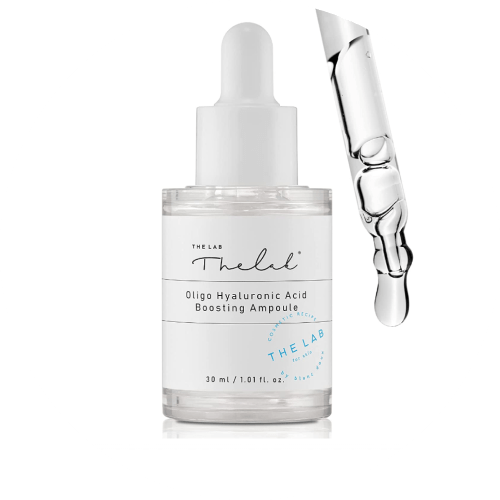
Benefits of Blanc Doux Oligo Hyaluronic Acid Serum Deeply Intense Hydrating Daily Essence Ampoule
- Deep hydration
- Anti-aging
- Soothing
- Lightweight texture
- Non-irritating
A daily ampoule essence that is hydrating is Blanc Doux Oligo Hyaluronic Acid Serum. For intense skin hydration, it includes ten different forms of hyaluronic acid. Additionally, it contains some plant extracts, including Centella Asiatica and green tea. They calm the skin and shield it from harmful environmental elements.
All skin types, especially those with dehydrated skin, can use this serum. It enhances the health and look of the skin and replenishes moisture. The composition is ideal for daily use. All because it absorbs well without leaving a sticky residue.
After cleaning and toning, apply a few drops of the serum to your face and neck. To properly absorb it, give your skin a gentle massage. For optimal effects, apply it both in the morning and at night. Throughout the day, follow up with your preferred moisturizer and sunscreen.
Bottom Line
Hyaluronic acid can be beneficial in is hyaluronic acid good for acne. All because of its ability to moisturize the skin without clogging pores. Use it to speed up the healing process of acne lesions. It can incorporate into a skincare routine to manage the symptoms of acne. Don’t forget to do a test on an area of your skin or see a dermatologist before using any product. So hurry up and choose a product from our list and feel its best effect on your skin!
FAQs:
Can hyaluronic acid cause acne?
Hyaluronic acid (HA) is generally considered safe and non-comedogenic. That is, it does not clog pores or cause acne. But, in rare cases, a person may be sensitive or allergic to HA. This can potentially lead to the development of acne or other skin reactions. Always test new skincare products before using them on your face.
Is hyaluronic acid good for oily acne?
Yes, hyaluronic acid (HA) can be beneficial for oily, acne-prone skin. HA is a light ingredient that can help moisturize the skin without adding extra oil. It cannot directly treat the underlying causes of acne. But using HA in skin care can help improve the condition and appearance of your skin.
Can hyaluronic acid clog pores?
Hyaluronic acid (HA) is a light, non-comedogenic ingredient. That is, it does not clog pores. HA works by retaining moisture, helping the skin to stay hydrated. It is often recommended for those with oily or acne-prone skin. But, as with any skincare product, individual reactions can vary. So, it is important to consult a dermatologist if you have any concerns about your skin.
Can I use hyaluronic acid on active acne?
Yes. What’s more, it can help reduce redness and inflammation from acne. But, it is important to note that HA is not an acne treatment. It should not use as a replacement for acne products. It can use in combination with other treatments as part of a comprehensive treatment. If you have active acne, it is best to consult a dermatologist. That way you will determine the best course of treatment for your individual needs.
Can I put hyaluronic acid on an open pimple?
It is not recommended to put hyaluronic acid (HA) on an open pimple or broken skin. When the skin breaks, it is vulnerable to infection and irritation. HA should apply to clean, intact skin to avoid further irritation or infection. Applying HA to an open pimple or broken skin may cause stinging, burning, or other discomfort. It is best to wait until the skin has healed before incorporating HA into your skincare routine. If you have concerns about your skin, it is always a good idea to consult with a dermatologist.


